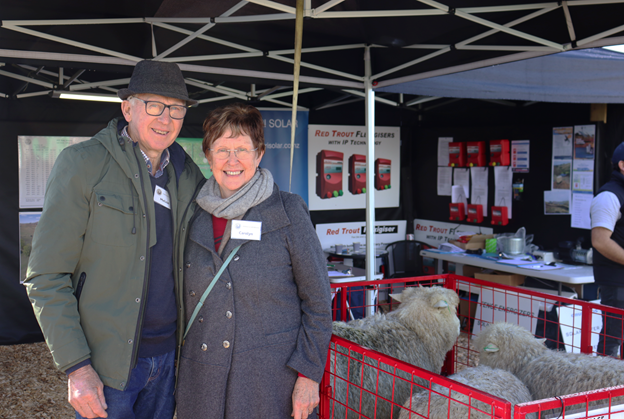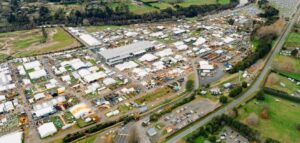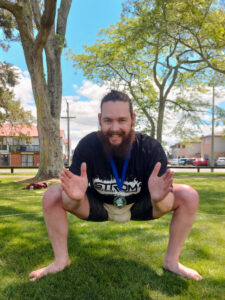Never Been Drenched
Malvin Forlong is a third-generation farmer and owner of Fernleaf Romneys, which is located in Taumarunui. Fernleaf Romneys sells its sheep all over the country and have wonderful stock. Malvin has been attending Fieldays for the last 16 years and is committed to bringing his sheep with him, one ram who has never been drenched in his life and two breeding ewes that may have only had one drench in their lives.
Drenching is when a drench gun is used by farmers to supply a dose of antiparasitic medication into the throat of each sheep, killing all the parasites the sheep may have.
Fernleaf Romneys is committed to breeding sheep that are resistant to internal parasites and believe drenches are no longer being effective as the parasites have grown resistant. This is the same as in human health where bugs are getting more drug-resistant, but for farm animals, there is a quicker turnaround with exposure. More and more farmers are finding trouble due to this growing issue.
“We knew this was going to be a problem we would face in the future, so 20 years ago we started selective breeding,†says Malvin.

He has done this through analysing sheep dropping and only breeding from the ones who have a low parasite egg count, as they have noted it to be inheritable.
After 50 years of performance reporting, Malvin now has around 70% of his stock not needing drenches or any pharmaceutical products. Malvin has noticed that “generations of sheep are dependent on pharmaceuticals, instead of natural immunity. We are looking for a sheep that has that natural immunity to parasites so that it can thrive and do wellâ€.
Malvin is also very passionate about the sustainability of wool and feels he is promoting it at a time where it is almost worthless. It costs him twice as much to shear the sheep as they get for the products, regardless of this, Malvin stands by wool.
“Carpeted 3-bedroom house, if it was done with synthetic carpets, is equivalent to 22,000 plastic bags and then at the end of its use, it goes straight to the landfill where it won’t ever break down,†says Malvin. “Whereas wool will break down and rot over time and it is also a fire suppressant. Sooner or later, the world will wake up to the damages of synthetics and what they are doing to the environment,†adds Malvin.




